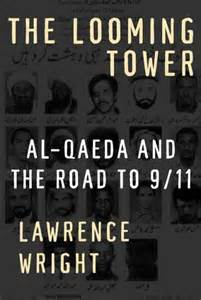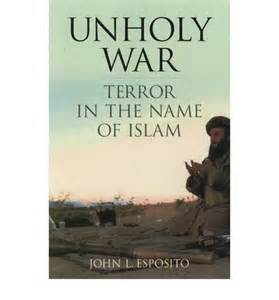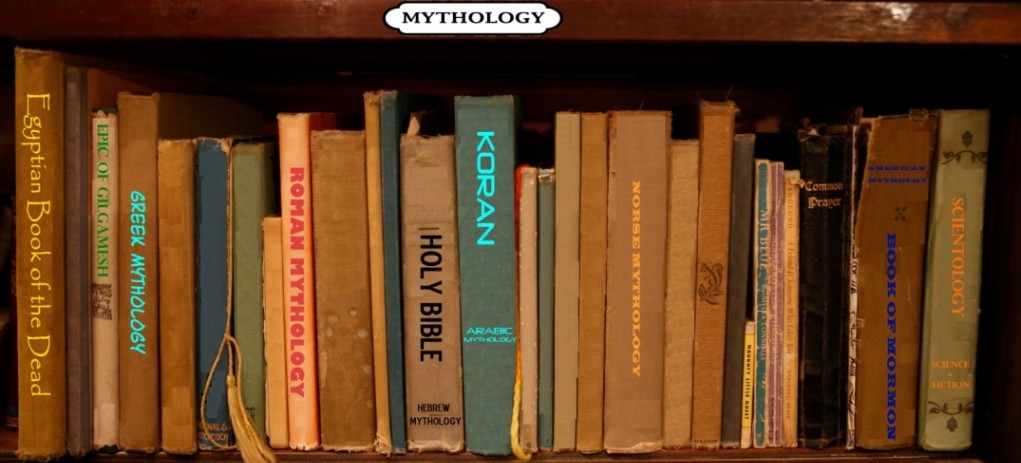
I’m re-reading Lawrence Wright’s detailed exposition of the events leading up to 9-11 and just finished John L. Esposito’s Unholy War as well to get a deeper perspective on the essence of Islamic terrorism. I’ve blogged on Wright’s book before HERE.
Much of the past 60 years of strife within so many Muslim countries (the vast majority of Islamic terrorism is against other Muslims) stems back to ideologies developed post WWII in Egypt and from one man in particular: Syyed Qutb.
Wright from the Looming Tower (pg. 28) on Qutb in the late 1940’s:
“He intended to show that Islam and modernity were completely incompatible. His extraordinary project, which was still emerging, was to take apart the entire political and philosophical structure of modernity and return Islam to its unpolluted origins….Separation of the sacred and the secular, state and religion,science and theology, mind and spirit-these were the hallmarks of modernity, which had captured the West. But Islam could abide no such divisions….Islam was total and uncompromising. It was God’s final word. Muslims had forgotten this in their enchantment with the West. Only by restoring Islam to the center of their lives, their laws, their government, could Muslims hope to recapture their rightful place as the dominant culture in the world. (emphasis mine) That was their duty, not only to themselves but also to God.”
This thinking is not new to ISIS, nor was it to bin Laden. It goes back even further than the mid 20th century Muslim ideologues to the purification and revolutionary ideas of al-Wahhab in the 18th century. This thinking is built into Islam itself.
Some kind of reform of Islam is absolutely necessary to dampen this absolutist thinking that recurs every century in a more virulent form. It matters not who the government in charge is. Islamic terrorism doesn’t require outside colonization or meddling in Muslim countries affairs or invasion by the superpowers or European countries: an Islamic dictator like Saddam Hussein or Assad, a monarchy/theocracy like the rule in Saudi Arabia, or Nasser, Sadat in Egypt or any Islamic ruler in any country… all modern Islamic countries never quite match the ideals of the past Muslim state and the quest for purity and domination, and are subject to repeated attempts at violent overthrow from within.

I purposely read John L. Esposito’s “Unholy War: Terror in the Name of Islam” not for its provocative title but for Professor Esposito’s credentials as an established and respected Islamic scholar and one deeply immersed in religion, raised a Roman Catholic, masters in divinity, spent a decade in a monastery and is generally sympathetic to religion in general and to Islam as well and is the founder and current Director of the Center for Muslim-Christian Understanding. This is not a right-wing evangelical Xian nut-job who views Islam as the new threat to Xianity to be defeated. He appears to be the studious and conciliatory type and is certainly an accomplished Muslim historian and scholar.
On pg 43. of Unholy War Esposito quotes Qutb directly on the unquestioned reliance on the past:
” It is therefore necessary-in the way of the Islamic movement- that in the early stages of our training and education we should remove ourselves from all influences of the Jahiliyyah (non-Muslim times and practices prior to Muhammed, and all non-Muslim cultures today) in which we live and from which we derive benefits. We must return to that pure source from which those people derived their guidance…which is free from any mixing or pollution(emphasis mine)…From it we must also derive our concepts of life, our principles of government, politics, economics and all other aspects of life.”
Esposito comments:
“This statement by Sayyid Qutb illustrates the extent to which Muslim rely heavily on the past for meaning and guidance in the present. Many non-Muslims might be prepared to understand a believer’s return to the Quran and the Sunnah (example) of the Prophet Muhammed for instance, but they would be astonished to learn the extent to which the ideas of medieval and pre-modern theologians and movements directly impact the world of Islam today.”
This is not Bill Maher or Sam Harris talking, but a lifelong scholar of Islam who is a religionist himself and is active in promoting Christian-Muslim understanding. His tone is sympathetic to the grandeur of all religion and Islam’s many facets and history, yet what comes thru in his historical review is a clear statement of Islam’s internal problems, containing a conceited obsession with Islam’s past, assumed unsurpassed by any other culture anywhere, anytime, and an all or nothing emplacement of Islamic rule with no corruption by the ideas of any other culture or time. It has a built-in rejection of modernity or assimilation of other cultures ideas and progress. The human rights Islam rejects are not exclusively Western, nor is democracy, but rather a species wide development that encompasses all cultures now and a majority of countries …other than Islamic ones. This is not the result of colonialism or intervention. The Islamic countries meddle in each others governments as much as any of the East or West (Russia, US, Britain, France, etc.,). And in perfection, Islam should also rule over all others. Everything will be perfect if pure Islam governed the entire human race.
Wright, here quoting Hasan al-Banna, Qutb’s fellow Egyptian ideologue and contemporary (pg. 29)
“It is the nature of Islam to dominate, not to be dominated, to impose its law on all nations, and to extend its power to the entire planet”
Lastly Wright again on Qtub (pg. 35):
“Only a complete rejection of rationalism and Western values offer the slim hope of the redemption of Islam. This was the choice: pure, primitive Islam or the doom of mankind”
ISIS, Boko Haram, bin Laden, go down the list of Islamic terror organizations, all look back to this imagined perfect past of Islam and the Prophet’s exemplary actions and its rule over others in a way unparalleled in any other religion. In addition being taught that Islam is perfect without need of improvement and should rule over the rest of the globe, sets up an impossible set of expectations. The reality that Islamic countries find themselves to remain continually backwards and un-progressive and in abject denial of science only sets Muslims up for frustration at not only not rising to the top of the heap, but always finding themselves at the bottom in comparison to most other countries, East, West, Old World even New. Decidedly, the continual re-establishment of supposedly purer Islamic regimes, never seems to get them anywhere.
Most of this sort of Utopian political system ideology that puts ideas first and individual lives second and overall human rights a distant third while simultaneously proclaiming itself to be what is best for all mankind, died with the end of the fascist regimes of WWII, the end of Hitler’s Nazism, the collapse of the Soviet Union and the failure of Marxist approaches there and across eastern Europe and China, but lives on in Islam in earnest with an unquestioned religious justification behind it and with a unique and resolute harkening back to medieval times. This is not the product of extremism, nor an understandable response to past colonialism nor modern intervention but is part and parcel of the religion itself.
No reform movement, no existing Islamic government is ever good enough, pure enough, Muslim enough. There are no allies, only enemies. One need only review the infighting among reform movements and Islamic governments within the long list of Muslim countries of the past century which Esposito dispassionately reviews in his clear-headed, non judgmental book to see that well after Europe’s colonialism and before US involvement in Iraq or Afghanistan, this brand of ideology was a built-in response not to secular governments of the West ruling in Muslim lands but to decidedly Islamic governments that were never pure enough, never Islamic enough for the ideologues.
Osama bin Laden is a classic example of so many that turn their back on modernization and secular ideals whether from the West or East that to them only pollute Islam. In bin Laden’s case even the most hard-core extremist expression of Muslim rule, the Wahhabi-Saud theocracy, even that repressive society with its weekly be-headings and amputations, its outlawing of all other religions, its refusal to grant citizenship to any but Muslims, its off the scale misogyny towards women including not being allowed to drive…was not good enough, not pure Islam enough like the imagined perfect past of Muhammed’s time and the caliphate that followed from 700-1200 during the Golden age.
I urge anyone who wants to see why these often apologetically termed “extremist” ideas continue to re-emerge throughout the Muslim world check out both these authors, for starters.
end religion now. Reform this one as soon as possible.
(400)

Dare I mention South America. This was a case of ‘convert or else’! It seems like a a long time ago, but such differences are only a matter of time.
When I had my brief flirtation with religion, spreading the word was considered an important activity; the rationale being that one could only be saved if you accepted Jesus and that could only happen if they’d ‘heard the word’! There was a strong impetus to inform the ‘natives’ so to speak, and thus save their souls.
I think you’re underestimating the evangelical movement in Christianity Waz. I’d say both religions have a strong calling to spread the word and this can be seen by looking at a map. I’m not saying that you’re not right in relation to Islam, but I think you’re not seeing similar traits in your own backyard.
Heard about any evangelicals assassinating anyone who’se governments werent Xian enuf, setting up a Xian caliphate, taking down hi rises in New York with nearly 3,000 people in them? Killing 30,000 other Xians a year in sectarian violence, beheading apostates and throwing gays off roofs, taking sex slaves and throwing acid in women’s faces? Me neither. You can deny the differences in the religions all you want, I’ve outlined them here and in so many emails and 30 posts now on Islam. And I have attacked evangelical behavior and ideas in these posts more than I have critiqued Islam. The preponderance of evidence I have come across these past few months warrant my conclusions which are in line with all the ex-Muslim activists out there who have lived it. If we must agree to disagree, that’s OK by me.
Sorry Waz, didn’t see your last sentence until too late. Yes, I think we’ll have to agree to disagree about this.